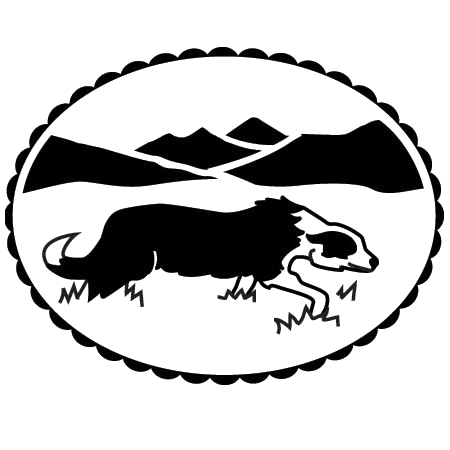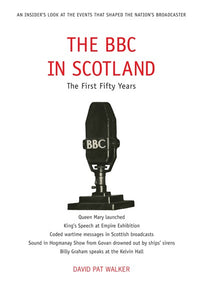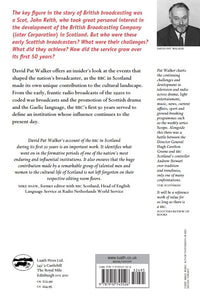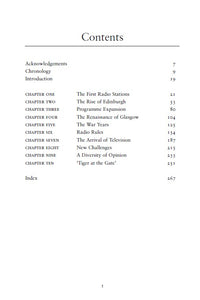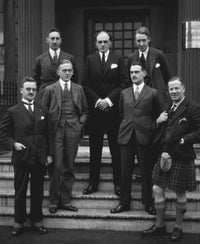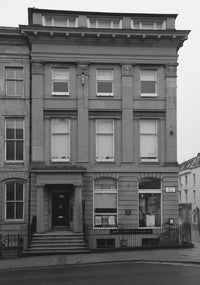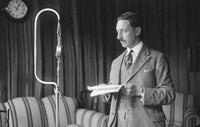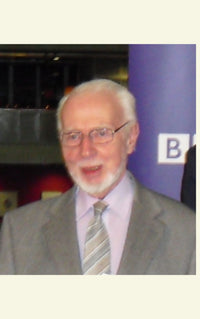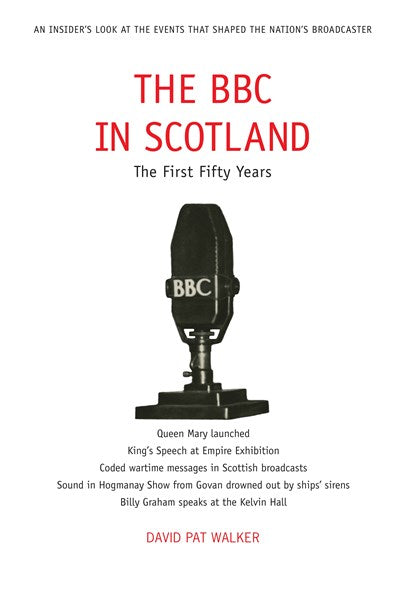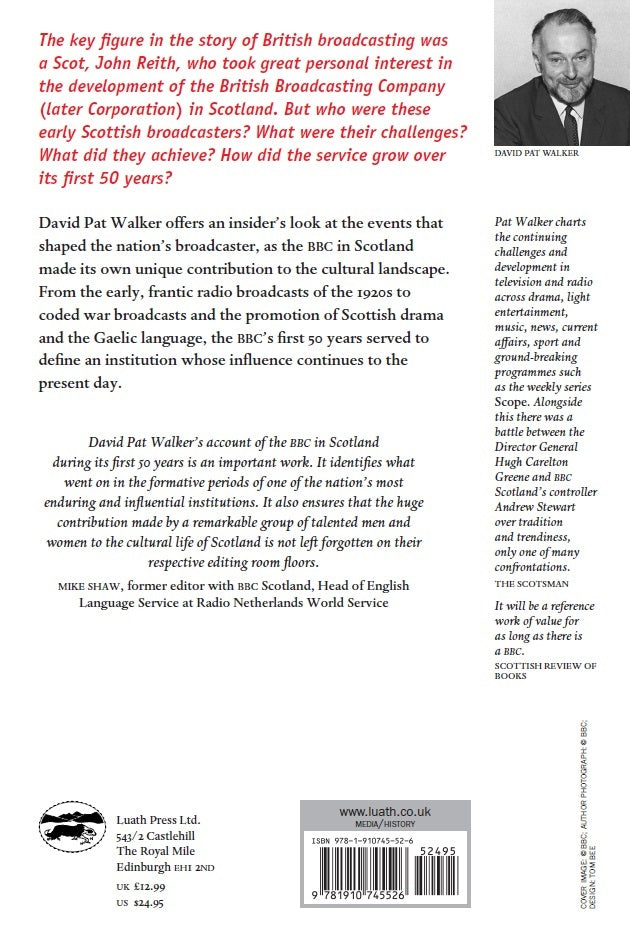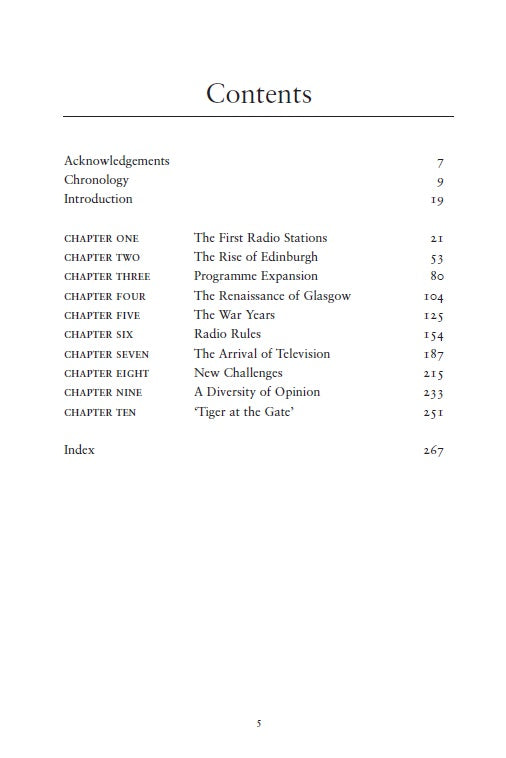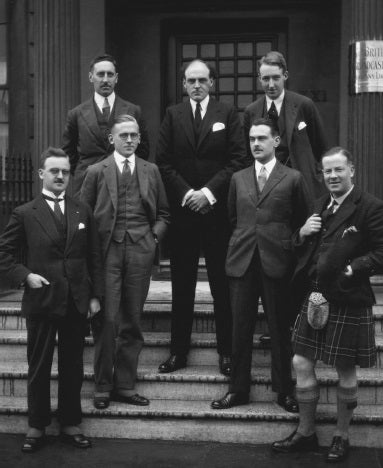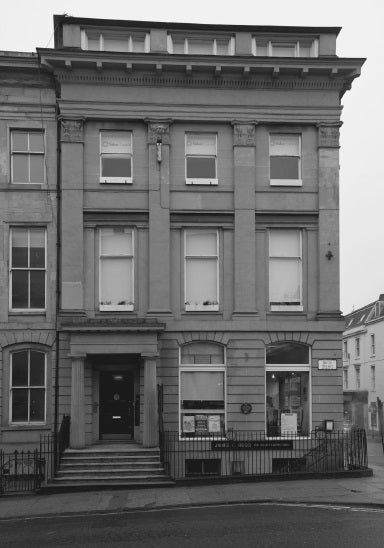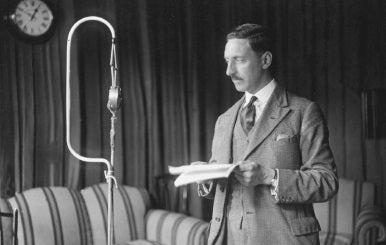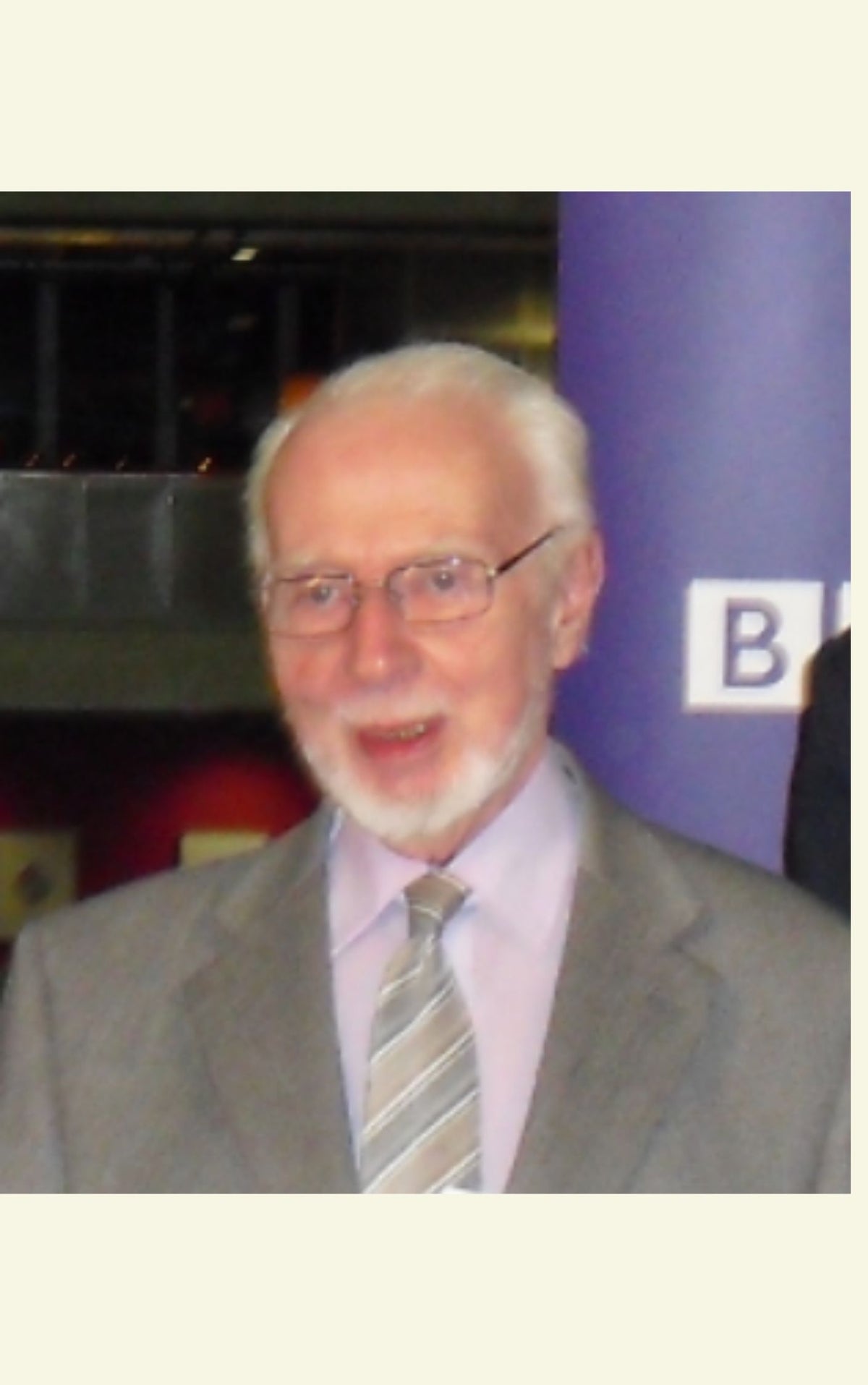The BBC in Scotland
The First Fifty Years
- Regular
- £20.00
- Sale
- £20.00
- Regular
- £20.00
- Unit Price
- per
Click here to learn about our Ebooks.
About the Book:
The key figure in the story of British broadcasting was a Scot, John Reith, who took great personal interest in the development of the British Broadcasting Company (later Corporation) in Scotland. But who were these early Scottish broadcasters? What were their challenges? What did they achieve? How did the service grow over its first 50 years?
David Pat Walker offers an insider's look at the events that shaped the nation's broadcaster. From the early, frantic radio broadcasts of the 1920s to coded war broadcasts and the promotion of Scottish drama, the BBC's first 50 years served to define an institution whose influence continues to the present day.
Reviews:
Pat Walker charts the continuing challenges and development in television and radio across drama, light entertainment, music, news, current affairs, sport and ground-breaking programmes such as the weekly series Scope. Alongside this there was a battle between the Director General Hugh Carelton Greene and BBC Scotland’s controller Andrew Stewart over tradition and trendiness, only one of many confrontations. THE SCOTSMAN
About the Author:
 DAVID PAT WALKER had personal contact with the BBC from his very earliest days in Glasgow. His mother was the well-known singer, then actress, Madeleine Christie, and the young Pat himself had ‘one line’ in a play broadcast in 1944. His father, a lawyer, was also called David hence the ‘Pat’ by which the son became known in media circles.
DAVID PAT WALKER had personal contact with the BBC from his very earliest days in Glasgow. His mother was the well-known singer, then actress, Madeleine Christie, and the young Pat himself had ‘one line’ in a play broadcast in 1944. His father, a lawyer, was also called David hence the ‘Pat’ by which the son became known in media circles.
Following service in the navy, he contacted the BBC in 1947 and landed a job in radio sound effects. One year later financial cutbacks led to his departure, only for him to rebound almost immediately on a freelance programme contract paying considerably more for much less effort.
Brief spells with Templeton’s Carpets and a mining project in the Western Isles were followed by a temporary contract as a junior programme engineer. He subsequently worked as a staff studio manager and then radio producer before joining the new television service in 1952. Starting as an outside broadcast studio manager, he rose to become a director of film and studio programmes in current affairs.
In 1960, he moved to Northern Ireland to become a television producer and then Assistant Head of Programmes, running the television service. Ten years later he returned to Scotland as Assistant Head of Programmes in charge of radio. Aware of Glasgow’s dominant media position, he was instrumental in developing Edinburgh as a programme base. Later on, as Head of Programmes, he visited WGBH in Boston where he noticed the way the station had made a part of its car park a garden for a television series. On his return to Scotland he was instrumental in encouraging the development of what came to be known as The Beechgrove Garden in Aberdeen. In 1975 he was Acting Controller of BBC Scotland and retired as Assistant Controller.
